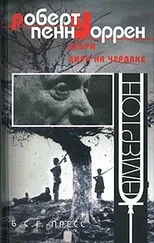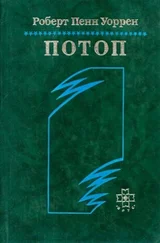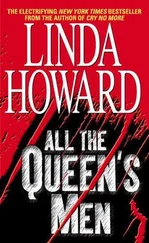Роберт Уоррен - All the king's men
Здесь есть возможность читать онлайн «Роберт Уоррен - All the king's men» весь текст электронной книги совершенно бесплатно (целиком полную версию без сокращений). В некоторых случаях можно слушать аудио, скачать через торрент в формате fb2 и присутствует краткое содержание. Жанр: Современная проза, на английском языке. Описание произведения, (предисловие) а так же отзывы посетителей доступны на портале библиотеки ЛибКат.
- Название:All the king's men
- Автор:
- Жанр:
- Год:неизвестен
- ISBN:нет данных
- Рейтинг книги:4 / 5. Голосов: 1
-
Избранное:Добавить в избранное
- Отзывы:
-
Ваша оценка:
- 80
- 1
- 2
- 3
- 4
- 5
All the king's men: краткое содержание, описание и аннотация
Предлагаем к чтению аннотацию, описание, краткое содержание или предисловие (зависит от того, что написал сам автор книги «All the king's men»). Если вы не нашли необходимую информацию о книге — напишите в комментариях, мы постараемся отыскать её.
All the king's men — читать онлайн бесплатно полную книгу (весь текст) целиком
Ниже представлен текст книги, разбитый по страницам. Система сохранения места последней прочитанной страницы, позволяет с удобством читать онлайн бесплатно книгу «All the king's men», без необходимости каждый раз заново искать на чём Вы остановились. Поставьте закладку, и сможете в любой момент перейти на страницу, на которой закончили чтение.
Интервал:
Закладка:
Long may have been such a martyr. That is, he may have been, as T. Harry Williams put it in the inaugural address of his Harmsworth Professorship at Oxford, a latter-day manifestation of the old American Populism. But there was, too, the ruthless drive toward centralized power and contempt for the democratic process, and the atmosphere of violence that hung over his career and reached climax in the hall of his capitol.
The definition of the nature of Huey Pierce Long, is, however, far from the concern of my novel, and even today I have not the ghost of a notion of what he, in truth, was. What caught my eye, and imagination, was the myth that I saw growing before my eyes. But when, in 1934, I went to Louisiana to live, I did not even know about the myth. I met the myth on the road there.
I was going there because, in the midst of the Depression, Huey's University, at Baton Rouge, was the only one in the country that was hiring, and not firing, young assistant professors. So I drove down from Tennessee, across the state of Mississippi, crossed the river by ferry at Greenville (there, I think), and was in North Louisiana. Along the way I picked up a hitchhiker – a country man, the kind you call a red-neck or a wool-hat, aging, aimless, nondescript, beat up by life and hard times and bad luck, clearly tooth-broke and probably gut-shot, standing beside the road in an attitude that spoke of infinite patience and considerably fortitude, holding a parcel in his hand, the parcel wrapped in old newspaper and tied with binder-twine, waiting for some car to come along. He was, though at the moment I did not sense it, a mythological figure.
He was the god on the battlement, dimly perceived above the darkling tumult and steaming carnage of the political struggle. He was a voice, a portent, and a natural force like the Mississippi river getting set to bust a levee. Long before the Fascist March on Rome, Norman Douglas, meditating on Naples, had predicted that the fetid slums of Europe would make possible the "inspired idiot." His predictive diagnosis of the origins of fascism – and of communism – may be incomplete, but it is certain that the rutted back roads and slab-side shacks that had spawned my nameless old hitchhiker, with the twine-tied paper parcel in his hand, had made possible the rise of Huey. My nameless hitchhiker was, mythologically speaking, Long's _sine qua non__.
So it was appropriate that he should tell me the first episode of the many I was to hear of the myth that was "Huey." The roads, he said, was shore better now. A man could git to market, he said. A man could jist git up and git, if'n a notion come on him. Did'n have to pay no toll at no bridge, neither. For Huey was a free-bridge man. So he went on to tell me how, standing on the river bank, by a toll bridge (what river and what bridge never clear), Huey had made the president of the company that owned the bridge a good, fair cash offer, and the man laughed at him. But, the old hitchhiker said, Huey did'n do nothing but leaning over and pick up a chunk of rock and throwed it off a-way, and asked did that president feller see whar the rock hit. The feller said yeah, he did. Wal, Huey said, next thing you see is gonna be a big new free bridge right whar that rock hit, and you, you son-of-a-bitch, are goen bankrupt a-ready and doan even know it.
There were a thousand tales, over the years, and some of them were, no doubt, literally true. But they were all true in the world of "Huey" – that world of myth, folklore, poetry, deprivation, rancor, and dimly envisaged hopes. That world had a strange, shifting, often ironical and sometimes irrelevant relation to the factual world of Senator Huey P. Long and his cold scrutiny of the calculus of power. The two worlds, we may hazard, merged only at the moment in September 1935, in the corridor of the capitol, when the little.32 slug bit meanly into the senatorial vitals.
There was another world, a factual world, made possible by the factual Long, though not inhabitated by him. It was a world that I, as an assistant professor, was to catch fleeting glimpses of, and ponder. It was the world of the parasites of power, a world of sick yearning for elegance and the sight of one's name on the society page of a New Orleans newspaper; it was the world of the electric moon devised, it was alleged, to cast a romantic glow over the garden when the President of the University and his wife entertained their politicos and pseudo-socialities; it was a world of pretentiousness, of blood curdling struggles for preferment, of drool-jawed grab and arrogant criminality. It was a world all too suggestive, in its small-bore, provincial way, of the airs and aspirations that the newspapers attributed to the ex-champagne salesman Von Ribbentrop and to the inner circle of Edda Ciano's friends.
As for Long, he was concerned with nothing but power, and though he surrounded himself with a motley crew on whose cupidity, vanity and yearnings he could play, he could once give a cynical warning too to a group of such hangers-on: if he died, he said, they would all go to the penitentiary. He was a prophet, and once the weight of his contempt, political savvy and discipline had been removed by the young Brutus in the capitol, the feverish little world of Governor's Mansion, capitol, and even campus was to go on a spree of high-geared and low-geared looting and larceny, and plunge idiotically rampant toward the day when headlines would advertise the suicides, and the population of prisons, Federal and state, would receive some distinguished additions.
But this is getting ahead of the story. Meanwhile, there was, beside the lurid world, the world of ordinary to look at. There were the people who ran stores or sold insurance, or had a farm and tried to survive and pay their debts. There were – visible even from the new concrete speedway that Huey had slashed through the cypress swamps toward New Orleans – the palmetto-leaf and sheet-iron shacks of the moss-pickers, rising like some fungoid growth from a hummock under the great cypress knees, surrounded by scum-green water that never felt sunlight, back in that Freudianly contorted cypress gloom of cottonmouth moccasins big as the biceps of a prize-fighter, and owl calls, and the murderous metallic grind of insect life, and the smudge-fire at the hovel door, that door being nothing but a hole in a hovel wall with a piece of crocker sack hung over it.
A few miles away, there was the University, where students were like students anywhere in the country in the big state universities, except for the extraordinary number of pretty girls and the preternatural blankness of the gladiators who were housed beneath the stadium to have their reflexes honed, their diet supervised, and through the efforts of tutors – their heads crammed with just enough of whatever mash was required (I never found out) to get them past their minimal examinations. Among the students there sometimes appeared, too, that awkward boy from the depth of 'Cajun country or from some hard-scrabble farm in some parish like Winn, with burning ambition and frightening energy and a thirst for learning; and his presence there, you reminded yourself, with whatever complication of irony seemed necessary at the moment, was due to Huey, and to Huey alone. For, as I have said, the "better element" had done next to nothing to get that boy out of the grim despair of his ignorance.
Conversation in Louisiana always came back to the myth of Long, to politics; and to talk politics is to talk about power. So conversation turned, by implication at least, on the question of power and ethics, of power and justification, of means and ends, of "historical costs." The big words were not often used, certainly not by the tellers of the tales, but the concepts lurked even behind the most ungrammatical folktale. The tales were shot through with philosophy.
Читать дальшеИнтервал:
Закладка:
Похожие книги на «All the king's men»
Представляем Вашему вниманию похожие книги на «All the king's men» списком для выбора. Мы отобрали схожую по названию и смыслу литературу в надежде предоставить читателям больше вариантов отыскать новые, интересные, ещё непрочитанные произведения.
Обсуждение, отзывы о книге «All the king's men» и просто собственные мнения читателей. Оставьте ваши комментарии, напишите, что Вы думаете о произведении, его смысле или главных героях. Укажите что конкретно понравилось, а что нет, и почему Вы так считаете.





![Роберт Уоррен - Рассказы [Компиляция]](/books/419993/robert-uorren-rasskazy-kompilyaciya-thumb.webp)


